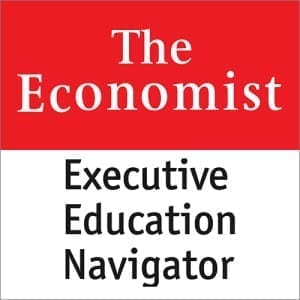It’s mixed news for mothers. Today’s professional women with families have more flexibility than ever before to balance work and caregiving.
Yet across the board women continue to earn, save and invest less than men their age, says Kimberly Palmer, financial expert and author of a new book Smart Mom, Rich Mom: How to Build Wealth While Raising a Family.
Double Punch
This gap in financial well-being between the sexes is due in part to the “motherhood penalty”— the loss of income and career stagnation that affects many female workers who have children. But a lower level of financial literacy among women also plays a large role, argues Palmer: “It takes root at an early age. Studies show that already as children, boys say they feel more comfortable with money and talk more about financial goals with their parents than girls.” It’s no surprise then that, as adults, women report lower levels of confidence when it comes to managing money.
These factors combined mean that women build less wealth over their lifetimes, often with lingering, unfavorable consequences. One recent survey showed that U.S. women over 65 are 80 percent more likely than men to live in poverty. In Europe, the average woman’s pension is worth only 60 percent of that of a man her age.
The anecdote, according to Palmer, is for working mothers to set clear money and life goals, and continue to make progress on them even as they balance the competing priorities of job and family. Here she recommends three ways professional women can become wealthier while managing their career and kids:
1. Make Fair Demands
Palmer argues that working mothers often trick themselves into believing they are not worthy of salary raises, promotions and their share of perks. Women’s lack of confidence with money matters contributes to this, making it uncomfortable for some to ask for what they deserve. But not learning to negotiate for higher salaries and better benefits has a long-term financial impact, she stresses. Research done at the University of Massachusetts revealed that a man’s salary increases six percent for each child he has but a woman’s drops four percent for each child, even if both continue to work full-time.
Women should take full advantage of the benefits offered in the workplace, including flextime, telecommuting options and extended maternity leave, Palmer recommends. They should regularly research salaries to make sure theirs is in line with the market, and, if not, negotiate a fair increase.
2. Maximize Career Satisfaction
Regardless of whether a professional working mother works full-time, part-time or opts for an extended break to care for children, she should stay in a field she finds fulfilling, Palmer urges. Career satisfaction leads mothers to remain in the workforce longer, giving them greater opportunity to build wealth. Many professional women with families take a non-linear career path not only because it provides them more flexibility but it is also a more rewarding way to do the work they love. This might include freelancing, launching side businesses or becoming self-employed. Such options allow them to meet competing demands and even scale back work while not sacrificing earning power long term.
3. Discover The Inner Investor
Palmer encourages mothers to embrace their roles as family money managers. That involves organising financial information in one place, and setting aside time on a quarterly basis to review accounts, file paperwork and make financial decisions. Assuming the lead on long-term investment strategy is equally important, and here women still have a lot of ground to cover. A 2013 Fidelity Investments report noted that only 19 percent of married women in the U.S. have primary responsibility for retirement decisions.
While mothers tend to prioritise their children’s financial needs over their own, Palmer advises against it: “with money, women really have to put themselves first.” Given the choice between saving for her retirement versus saving for a child’s university costs, a mother should save for her retirement since there is no other way to pay for it.
Although she makes clear that a working mother at any age or professional stage can learn to be smart about money, Palmer underscores that a wealth-building attitude ideally begins long before she has a baby. Young women need to become confident money and investment managers now and pass the torch on to their daughters.
Kate Rodriguez – career development and higher education marketing for The Economist Careers Network




































